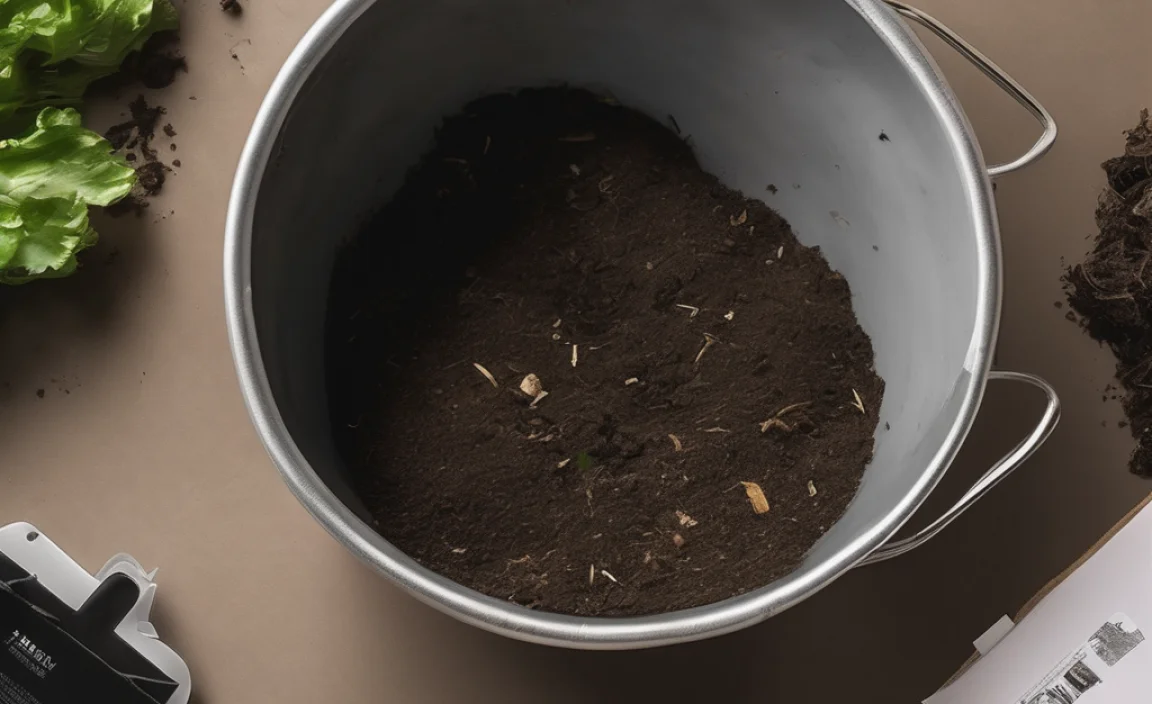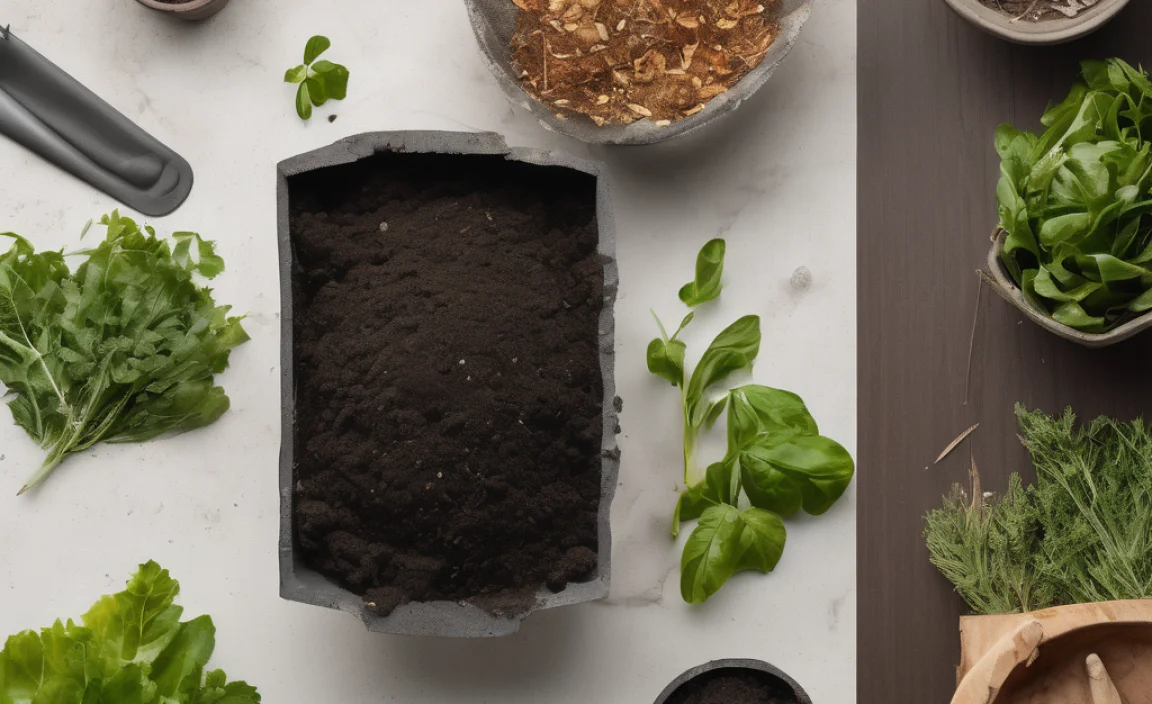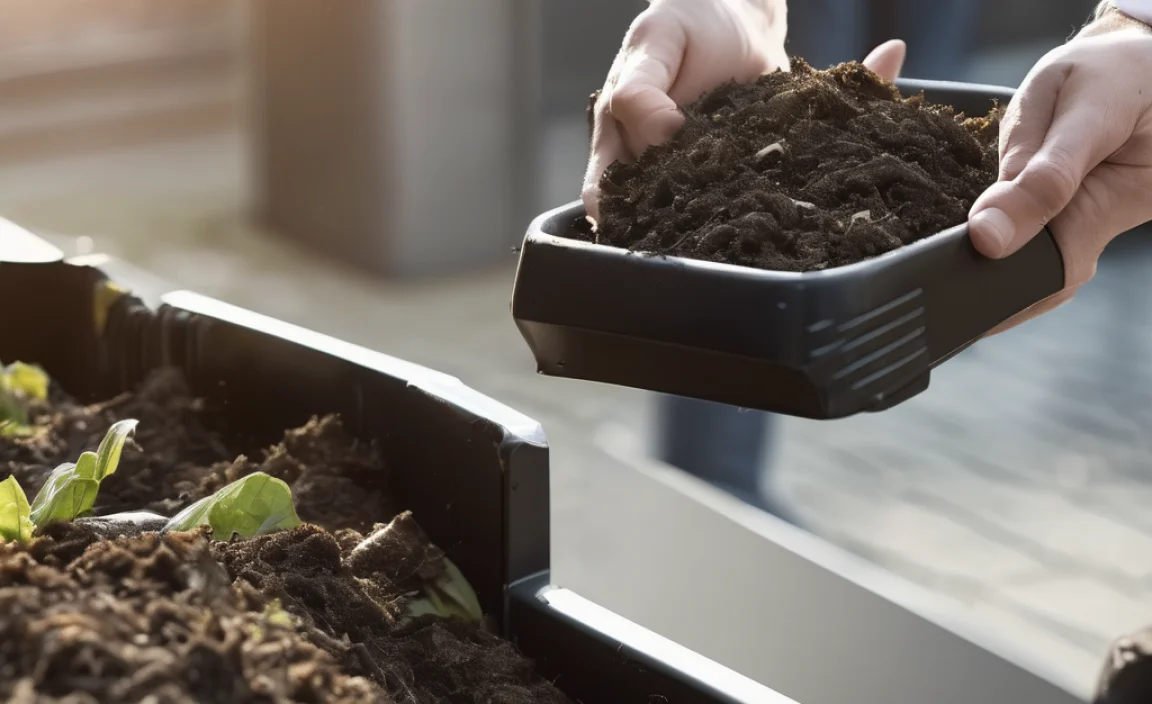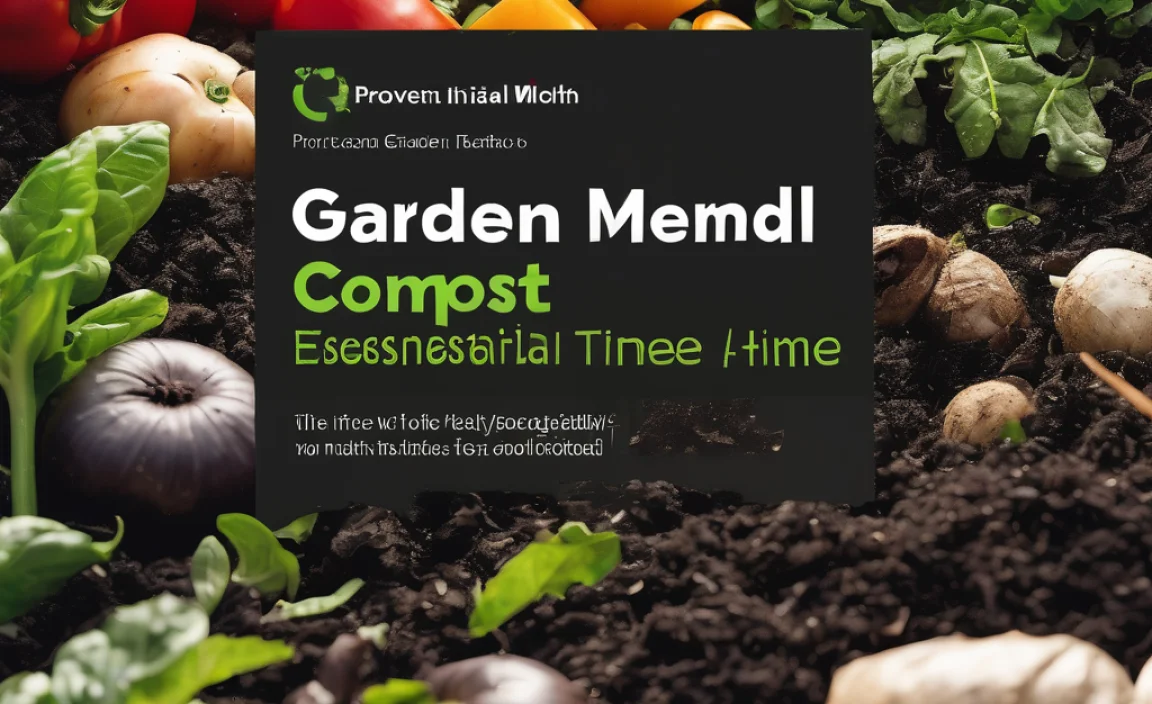Hey there, fellow eco-enthusiasts and hotel owners! Ever thought about what happens to all that food waste and other organic stuff your hotel produces? It’s a lot, right? Well, turning that waste into something useful, like compost, is not only good for the planet, but it can also be a smart move for your business. Don’t let the word “composting” sound complicated; it’s totally doable! We’re going to break it down, step-by-step, so you can get started with your own hotel composting solutions. Let’s turn trash into treasure!
Why Hotels Should Be Composting

Imagine this: your hotel kitchen is bustling, guests are enjoying their meals, and then… the waste bins start filling up. Food scraps, coffee grounds, paper napkins – it all adds up quickly. Tossing all of this into a landfill isn’t just a missed opportunity, it’s also contributing to a big environmental problem. Landfills release methane, a potent greenhouse gas, and all that organic material could be doing so much more good.
Composting offers a fantastic alternative. It’s a natural process that breaks down organic materials into a nutrient-rich soil amendment. For hotels, implementing composting solutions isn’t just about being green; it’s about smart resource management, cost savings, and enhancing your brand’s reputation as an eco-conscious establishment. Plus, happy guests who see your commitment to sustainability will appreciate it!
The Environmental Benefits
- Reduces Landfill Waste: A significant portion of hotel waste is organic and compostable. Diverting this from landfills lessens the burden on these sites and reduces the production of harmful methane gas.
- Creates Nutrient-Rich Soil: Compost is an excellent natural fertilizer. It improves soil structure, aeration, and water retention, leading to healthier plants.
- Decreases Greenhouse Gas Emissions: Decomposing organic matter in landfills produces methane. Composting, when done correctly, produces far less of this potent greenhouse gas.
- Conserves Water: Compost-amended soil holds moisture better, meaning less frequent watering is needed for any hotel landscaping or gardens.
The Business Benefits
- Cost Savings: Reduced waste disposal fees can lead to significant savings. Less trash going out often means lower hauling costs.
- Enhanced Brand Image: Sustainability is a major draw for today’s travelers. A visible composting program can attract eco-minded guests and boost your hotel’s reputation.
- Potential Revenue: High-quality compost can sometimes be sold to local landscapers, gardeners, or even used in on-site gardens that enhance guest experience.
- Employee Engagement: Involving staff in sustainability initiatives can boost morale and foster a sense of pride in their workplace.
- Compliance: As more local governments mandate waste diversion, having a composting system in place prepares you for future regulations.
Getting Started: The Hotel Composting Blueprint

Okay, so you’re convinced composting is a winner. Great! Now, let’s talk about how to actually do it. The key is to make it as easy as possible for your staff and guests to participate. We’ll cover everything from what to compost to setting up your system.
What Can Be Composted?
Not everything can go into your compost bin, but a surprising amount of what hotels generate can. Think of it as “greens” (nitrogen-rich) and “browns” (carbon-rich). The right balance is crucial for efficient composting.
Greens (Nitrogen-Rich Materials):
- Food Scraps: Fruit and vegetable peels, coffee grounds, tea bags (without staples or plastic packaging), eggshells.
- Food-Soiled Paper: Napkins, paper towels, unlaminated paper plates (ensure they are truly food-soiled as this helps them break down).
- Flowers and Plant Trimmings: From floral arrangements or hotel grounds.
Browns (Carbon-Rich Materials):
- Paper and Cardboard: Shredded newspaper, unbleached paper products, plain cardboard (torn into small pieces). Avoid glossy or heavily inked papers.
- Sawdust/Wood Shavings: If you have any on-site activities or use wood in decor.
- Dry Leaves: If your hotel has landscaping.
What NOT to Compost (Generally)
These items can cause problems, attract pests, or simply won’t break down well in a typical hotel composting system:
- Meat, Fish, and Dairy Products: Can attract pests and create odors. Some advanced industrial composting systems can handle these, but for most hotel setups, it’s best to avoid.
- Oils and Greases: Can slow down the composting process and create an anaerobic (low oxygen) environment.
- Diseased Plants: To avoid spreading plant diseases.
- Pet Waste
- Chemically Treated Wood or Paper
- Plastic, Metal, Glass: These are recyclables or trash.
- Stickers on Fruits/Vegetables
Choosing Your Composting Method
The best composting method for your hotel depends on your size, space, budget, and the volume of organic waste you produce. Here are a few popular options:
1. On-Site Composting Systems
This gives you the most control and can be scaled to your needs. It involves setting upbins or piles on your property.
a) Tumbler Composter
These are enclosed, rotating drums. They’re great for smaller volumes, neat, and can speed up the composting process. They help keep pests out and make turning the compost easy. You’ll need space for one or two, perhaps in a service area.
b) Three-Bin System
This is a more traditional method, often built from wood or wire mesh. It consists of three sections: one for adding new materials, one for actively composting, and one for curing compost. This requires more space and manual turning but can handle larger volumes.
c) In-Vessel Composting
These are sealed units, often electric, that contain the composting process. They are efficient, control odors and pests extremely well, and can handle a wider range of materials (sometimes including meat and dairy, depending on the system). They are a bigger investment but offer excellent results with minimal space requirements and labor.
For more on understanding composting methods and their management, the EPA’s guide to composting is a comprehensive resource, though it can be quite technical. For a beginner-friendly approach to home composting, which often translates to smaller hotel setups, resources like This Compost provide practical advice.
2. Off-Site Composting Services
If on-site composting feels too complex, too space-intensive, or too costly to set up initially, partnering with a commercial composting service is a great option. These services will collect your organic waste regularly and take it to a central composting facility.
- How it Works: You’ll be provided with special bins for your organic waste at key collection points (kitchen, dining areas). A contracted service picks these up on a schedule.
- Pros: Minimal effort for your staff, no on-site space needed, handled by professionals.
- Cons: Ongoing service fees, less direct control over the process and the finished compost.
This is often the most straightforward solution for hotels that want to divert waste without managing the composting process internally. Look for reputable local waste management companies that offer commercial composting collection.
Setting Up Your System: A Step-by-Step Approach
Let’s say you’re opting for an on-site system, perhaps a tumbler or a small-scale bin. Here’s how to get rolling:
Step 1: Designate Collection Points.
Place clearly labeled bins for compostable waste in high-traffic areas like hotel kitchens, staff break rooms, and possibly buffet stations or restaurants. Make it super obvious what goes where.
Step 2: Train Your Staff.
This is HUGE! Your staff are the front line. Hold training sessions to explain what items are compostable and why. Provide visual aids (posters!) in staff-only areas. Emphasize the importance of sorting correctly to avoid contamination.
Step 3: Choose Your Composter.
Based on your space and waste volume, select your tumbler, bin, or in-vessel system. Position it in a convenient, accessible, but discreet location – a back service area is often ideal.
Step 4: Gather Your Materials.
Stock up on your “greens” and “browns.” If you don’t have enough “browns” generated on-site, you might need to budget for purchasing shredded cardboard or wood chips.
Step 5: Start Composting!
Begin adding your collected organic waste to the composter. Aim for a good mix of greens and browns. A common ratio to aim for is roughly 2 parts browns to 1 part greens.
Step 6: Manage Your Compost Pile/Tumbler.
- Aeration: If you have a stationary bin, turn the pile regularly (at least once a week) with a pitchfork or compost aerator. Tumblers make this easy – just give them a spin! Good airflow prevents smelly, anaerobic conditions.
- Moisture: The compost should be as damp as a wrung-out sponge. Too dry? Add water. Too wet? Add more browns.
- Temperature: An active compost pile will heat up, which is a good sign it’s working! This heat kills pathogens and weed seeds.
Step 7: Harvesting Your Compost.
Compost is ready when it’s dark, crumbly, and smells like fresh earth – no longer recognizable as food scraps or other materials. This can take anywhere from a few weeks to several months, depending on your method and management.
Step 8: Use or Distribute Your Compost.
You can use the finished compost in your hotel’s landscaping, gardens, or potted plants. If you have excess, consider donating it to local community gardens or selling it.
Equipping Your Hotel for Composting Success
Getting the right tools makes all the difference. Here’s a quick rundown of what you might need:
| Item | Description | Purpose |
|---|---|---|
| Collection Bins | Small, lidded bins with clear signage for kitchens and dining areas. Larger, commercial bins for central collection points. | Encourage source separation of compostable materials. |
| Composter Unit | Tumbler, three-bin system, or in-vessel composter. | The core component for the composting process itself. |
| Tools for Turning/Aeration | Pitchfork, compost aerator, shovel (for bin systems). | To ensure adequate airflow and even decomposition. Tumblers negate the need for extensive turning. |
| Water Source/Hose | Accessible water supply near the composter. | To maintain optimal moisture levels. |
| Gloves | Durable, washable gloves for staff handling waste. | Hygiene and comfort for staff. |
| Shredder (Optional) | For breaking down paper and cardboard “browns.” | Speeds up decomposition by increasing surface area. |
| Signage | Clear labels for bins and informational posters. | Educates staff and guests, reduces contamination. |
Potential Challenges and How to Overcome Them
No big project is without its hiccups. Here are a few common challenges in hotel composting and practical ways to tackle them:
Challenge: Odor
Problem: Compost smells bad if it’s too wet, lacks air, or has the wrong mix of materials (too many “greens” or forbidden items like meat/dairy).
Solution:
- Maintain the correct moisture level (damp, not soggy).
- Ensure good aeration by turning regularly or using a tumbler.
- Add a generous layer of “browns” (shredded cardboard, dried leaves) to absorb excess moisture and balance the mix.
- Strictly avoid non-compostable or problematic items like meat and dairy.
Challenge: Pests
Problem: Fruit flies, rodents, or other critters attracted to food waste.
Solution:
- Use sealed bins for collection and a contained composting system (tumbler or in-vessel).
- Bury fresh food scraps deeper within the compost pile when adding them.
- Maintain a good “browns” to “greens” ratio.
- Ensure your composter is located away from building entrances and is not easily accessible to animals.
- Consider a service if pest issues persist.
Challenge: Contamination
Problem: Non-compostable items (plastics, metals, incorrect papers) ending up in the compost bins.
Solution:
- Clear, consistent, and highly visible signage on all bins.
- Thorough and ongoing staff training.
- Regular checks of collected materials before adding to the main composter.
- Educate guests about what is compostable through in-room materials or at dining stations.
Challenge: Space Limitations
Problem: Not having enough outdoor space for a traditional compost pile.
Solution:
- Opt for a compact tumbler composter or a vertical composting system.
- Invest in a high-tech, enclosed in-vessel composter which has a small footprint.
- Partner with an off-site commercial composting service.
Challenge: Staff Buy-in and Participation
Problem: Staff feeling it’s too much extra work or not understanding the importance.
Solution:
- Clearly communicate the business benefits (cost savings, reputation).
- Make the system as user-friendly as possible.
- Recognize and reward staff for their efforts.
- Involve them in the decision-making process for bin placement and signage.
- Highlight successes – show them the compost being used around the hotel!
Composting in Different Hotel Areas
Let’s think about where composting will happen and how to set it up:
Kitchen Operations
This is where the bulk of food waste is generated. Dedicated bins for prep scraps (vegetable peels, coffee grounds, eggshells) are essential. Staff need to be expertly trained here. Consider dedicated collection caddies on counters and larger bins for daily emptying.
Restaurants and Buffets
Guests might need a little more guidance. Clearly marked bins at plate scrapings stations are key. Consider using signage that shows pictures of what can and cannot be composted. For buffets, having staff help manage plate clearing can reduce contamination.
Guest Rooms
This is trickier. While guests might generate some compostables (e.g., coffee pods, fruit peels from room service), it’s often challenging to manage and can lead to contamination and odor. Many hotels choose not to place compost bins in individual rooms. If you do, ensure very clear instructions and consider what types of compostables guests are likely to produce.
Landscaping and Grounds
Trimmings from your gardens, leaves, and grass clippings are excellent “browns” or “greens,” depending on the mix. These can often be added directly to larger on-site composting systems, significantly boosting your carbon material if needed.
The Journey to a Greener Hotel

Implementing composting for hotels solutions is more than just a trend; it’s a responsible business practice. By diverting organic waste, you’re not only helping the environment but also potentially cutting costs and boosting your hotel’s appeal to a growing segment of conscious travelers. Remember, starting small is perfectly fine. Even a simple partnership with a commercial composting service is a significant step.
The key is commitment and clear communication. Educate your staff, make the process as easy as possible, and celebrate your successes. Over time, composting will become a natural part of your hotel’s operations, a testament to your dedication to sustainability. You’re not just providing a place to stay; you’re creating a positive experience that cares for our planet. So, let’s get started and watch that waste transform!

